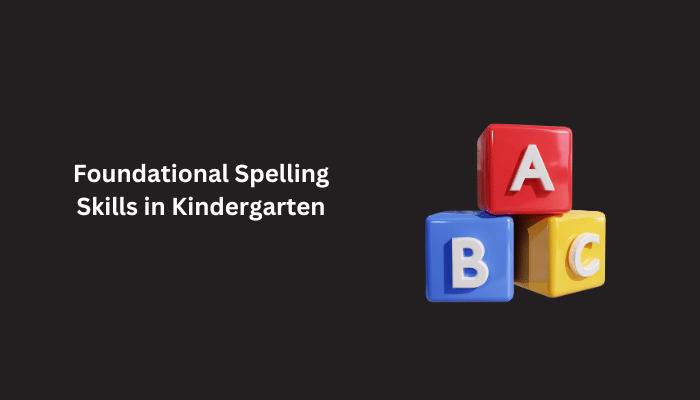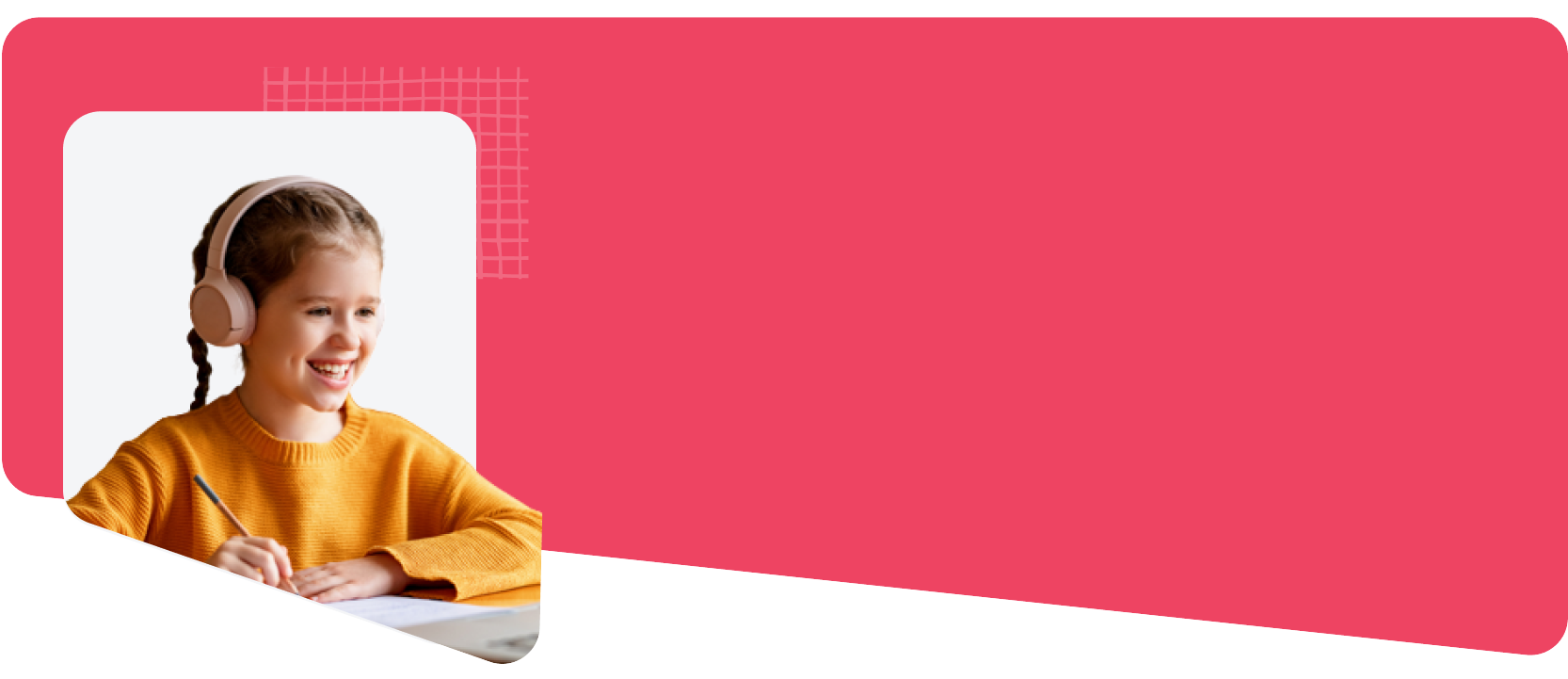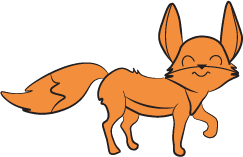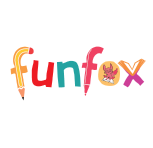Who knew that spelling words for kindergarten kids could be as epic as a gladiator battle in the Colosseum—only with less dirt and more giggles?
At just six years old, Akash Vukoti captured hearts with his remarkable spelling prowess, becoming the youngest competitor in Scripps National Spelling Bee history in 2016! Why is his achievement significant, you might ask.
Spelling words for kindergarteners shape their language skills and overall literacy development. At this foundational stage, mastering spelling enhances communication and lays the groundwork for future academic success.
In the early years of schooling, spelling proficiency forms the cornerstone for written expression, fostering cognitive development by strengthening phonemic awareness and letter-sound correspondence. It ensures effective learning for kindergarteners by engaging in developmentally appropriate words and practices.
Incorporating familiar and meaningful words into spelling activities, such as the child's name or everyday objects, captures their interest and reinforces the relevance of spelling in their daily lives. Integrating multisensory learning practices, such as tracing letters in sand or forming words with alphabet blocks, enhances retention and understanding.
Pairing spelling activities with reading aloud and storytelling further reinforces word recognition and comprehension, creating a holistic approach to language learning.
By incorporating these recommendations, educators and parents can create a supportive environment where kindergarteners can develop a strong foundation in spelling and literacy skills.
As we explore the realms of spelling mastery, let's dive into how young learners, much like kindergarteners embarking on their educational voyage, can benefit from early exposure to the intricate dance of letters and sounds, paving their way to becoming future champions in literacy and beyond.
What Words Should Kindergartners Learn to Spell?
Kindergarten marks the beginning of a child's formal education journey, and spelling plays a crucial role in their language development. Here are some essential considerations for selecting words that kindergartners should learn to spell:
Emphasis on learning to spell the child’s name as the first word:
One of the first words a kindergartner should learn to spell is their name. Not only does this foster a sense of identity and pride, but it also provides a personal connection to the spelling process. By mastering the spelling of their name, children gain confidence and motivation to explore other words.
Suggestions for words with everyday meaning and simple spelling:
The benefit of spelling words for kindergarten is that they have everyday relevance and simple spelling patterns. Words like "mom," "dad," "cat," "dog," "sun," and "moon" are not only familiar but also feature straightforward letter-sound correspondences. These words allow children to practice spelling in context and build foundational skills.
Introducing words in simple word families:
Word families are groups of words sharing a base or root and a similar spelling pattern. Introducing kindergartners to words in simple word families, such as "ad," "an," "ap," and "at," provides them with a systematic approach to spelling. Here are several word families beyond "at" and "in" that are pivotal for kindergarteners, accompanied by specific examples of effective learning practices:
'Ad' Family: "bad," "dad," "mad," and "sad."
'An' Family: "can," "fan," "man," and "pan"
'Ap' Family: "cap," "map," "nap," and "tap"
'Ed' Family: "bed," "led," "red," and "wed"
'En' Family: "den," "hen," "men," and "pen."
'Et' Family: "bet," "jet," "let," and "pet"
'Ig' Family: "big," "dig," "fig," and "pig,"
'Ot' Family: "cot," "dot," "hot," and "pot."
'Ug' Family: "bug," "hug," "rug," and "tug,"
By weaving these word families into daily learning experiences through storytelling, play, and practical activities, educators and parents can significantly help enhance kindergarteners' spelling skills.
Kindergarten Spelling Curriculum Sequence
A well-structured spelling curriculum for kindergarteners begins with the foundational building blocks of language: two and three-letter Consonant-Vowel-Consonant (CVC) words. Starting with simple words such as "cat," "dog," and "bin" allows young learners to grasp the fundamental relationships between sounds and letters. This initial stage sets the groundwork for a seamless transition to more complex spelling structures.
As students gain confidence with CVC words, the curriculum introduces the concept of the silent 'e,' transforming simple words into slightly more complex ones. For example, "cap" becomes "cape," and "pin" transforms into "pine." This progression expands the child's vocabulary and deepens their understanding of how letters interact to change word meanings and sounds.
After introducing silent 'e', attention shifts to exploring double vowels, such as "ee" and "oo," which further enriches the learner's phonemic awareness, words like "seed," "feet," "moon," and "boot" exemplify how vowel pairs can alter the sound and meaning of words, offering an engaging challenge to young spellers.
The curriculum caters to the diverse learning paces within a kindergarten and leverages word families and blends, such as "TR" in "trip" and "train" or "FR" in "frog" and "freeze." This approach reinforces phonemic understanding and provides ample opportunities for practice and application in varied contexts.
Understanding that each child's learning journey is unique, the curriculum requires adaptability. Teachers and parents can customise learning experiences by selecting word families and spelling structures that resonate most with the child's interests and current level of understanding. It involves focusing more heavily on certain word families or introducing new blends more slowly, depending on the child's progress and engagement.
By thoughtfully sequencing the curriculum from simple CVC words to more complex ones, allowing for changes based on individual learning paces, spelling words for kindergarteners can be an achievement at every stage of their spelling journey. This careful balance of challenge and support ensures that every young learner can build a strong foundation in spelling, paving the way for future literacy success.
Also Read: Top Free Learning Resources For Kids
Foundational Spelling Skills in Kindergarten

In kindergarten, the development of spelling skills goes hand in hand with the acquisition of overall language arts skills. As children explore language through reading, writing, and communication, they naturally begin to understand the building blocks of spelling. Here are key factors that contribute to the development of spelling skills in kindergarten:
Explaining the development of spelling skills alongside overall language arts skills:
In kindergarten, spelling skills develop alongside other language arts skills, such as phonemic awareness, vocabulary acquisition, and sentence structure. As children engage in activities like reading aloud, storytelling, and shared reading experiences, they become familiar with letter-sound relationships and spelling patterns. Through exposure to written language in various contexts, children develop an understanding of how words are constructed and spelt.
Influence of parental support in fostering interest in words and reading:
Parental support is crucial in fostering an early interest in words and reading. By reading to their children regularly, engaging in conversations, and providing opportunities for writing and creative expression, parents can introduce their children to a language-rich environment that encourages spelling exploration. Simple activities like labelling household items, playing word games, and writing letters or notes together help reinforce spelling concepts and promote a love for language.
Introduction to activities for skill reinforcement:
Several activities can be incorporated into daily routines and classrooms to establish spelling skills in kindergarten. Regular writing and reading activities allow children to practice spelling in context and apply newly learned words. Spelling rules can be introduced gradually through interactive lessons and discussions, helping children understand the principles behind spelling patterns.
Spelling games and quizzes add an element of fun and engagement to spelling practice. Activities like word hunts, spelling bees, and online spelling games provide interactive opportunities for children to apply their spelling knowledge in a playful setting. Guided spelling activities, such as word sorting, word building, and dictation exercises, offer structured practice and support tailored to individual learning needs.
Educators and parents can help children develop foundational spelling skills that lay the groundwork for future literacy success by integrating these activities into the kindergarten curriculum and fostering a supportive learning environment at home.
Activities, Games, and Worksheets for Learning to Spell Kindergarten Words
Incorporating engaging activities in kindergarten like games and worksheets, is essential for fostering spelling skills and promoting literacy development. Here are various strategies and resources that can be used to enhance spelling learning:
Describing the usage of Kindergarten sight words for reading, writing, and spelling enhancements:
Kindergarten sight words, known as high-frequency words, are crucial for early literacy development. These words occur frequently in written text and often do not follow regular spelling patterns.
Children can develop fluency and automaticity in recognising and spelling these essential words by introducing sight words through reading, writing, and spelling activities, sight word games, flashcards, and interactive activities can make learning these words fun and engaging.
Introduction to Kindergarten spelling resources and additional tools for lesson planning:
Many spelling resources and tools are available to support kindergarten educators and parents in lesson planning and instruction. Online platforms, educational websites, and digital apps offer interactive spelling games, activities, and resources tailored to kindergarten learners.
These resources provide opportunities for differentiated instruction, allowing educators to cater to individual learning styles and needs. Additionally, printable worksheets, workbooks, and spelling journals can serve as valuable tools for hands-on practice and reinforcement of spelling concepts.
Discussions on specific printable worksheets for effective learning:
Printable worksheets are versatile and customisable tools that target specific spelling skills and concepts. For kindergarten learners, worksheets focusing on letter recognition, letter-sound correspondence, sight word practice, and word families can be particularly beneficial.
Activities such as fill-in-the-blank exercises, word searches, word matching, and sentence writing provide opportunities for hands-on practice and reinforcement of spelling skills.
Educators can also create themed worksheets based on seasonal topics, classroom themes, or student interests to enhance engagement and relevance.
Parents and educators can create dynamic learning experiences that promote spelling proficiency and literacy development in kindergarten learners by incorporating different activities, games, and worksheets into spelling instruction.
Through meaningful practice and reinforcement, children can build a strong foundation in spelling skills that will serve them well as they continue their educational journey.
Techniques to Encourage Spelling Word Retention
Encouraging kindergarteners to retain spelling words involves employing various engaging and effective techniques tailored to their developmental stage. Here are several strategies to foster spelling word retention:
Learning to spell their names through repetitive use:
For many kindergarteners, their name is the first word they learn to spell. children can practice spelling their names repeatedly, reinforcing letter-sound correspondence and enhancing retention by incorporating their names into daily activities, such as labelling belongings or creating name crafts.
Reading new spelling words in context and practice writing:
Integrating spelling words into reading activities allows children to encounter new words in context. Encourage kindergarteners to read simple sentences or short stories containing spelling, and then practice writing the words independently. This contextual approach helps reinforce spelling patterns and enhances word recognition skills.
Writing new words in worksheets and repetitive work:
Providing children with worksheets and repetitive writing exercises allows them to practice spelling words in a structured and systematic manner. Worksheets featuring fill-in-the-blank sentences, word scrambles, and spelling word lists offer opportunities for hands-on practice and reinforcement of spelling skills.
Spelling new words aloud, individually or as a group:
Encourage kindergarteners to spell words aloud or as a group to reinforce phonemic awareness and pronunciation. Group spelling games, such as spelling bees or spelling circles allow for collaborative learning and peer support.
Creating a fun learning environment with games to reinforce spelling skills:
Incorporating spelling games into lessons adds an element of fun and excitement to learning. Games such as "Spelling Bingo," "Word Scavenger Hunt," or "Spell It Out" offer engaging ways for children to practice spelling words while reinforcing spelling rules and patterns.
Implementing rainbow writing using different colours for each letter:
Rainbow writing is a multisensory technique that involves writing spelling words using different colours for each letter. This visual and kinesthetic approach helps children focus on letter formation and enhances memory retention through repetition and sensory stimulation.
Encouraging memorisation of a few words at a time with patience and repetition:
Breaking down spelling word lists into manageable chunks and focusing on memorising a few words at a time can help prevent overwhelm and promote successful retention. Encourage children to practice spelling words daily, using repetition and patience to reinforce learning gradually.
Educators and parents can create a supportive and engaging learning environment that fosters spelling word retention and promotes literacy development in kindergarteners by including these techniques in spelling instruction.
Conclusion
As we conclude our exploration into the world of kindergarten spelling, it's evident that spelling holds a crucial role in shaping young learners' language skills and overall literacy development. Every aspect contributes to creating a foundation for future academic success.
Through engaging activities, targeted practice, and supportive guidance from educators and parents, kindergarteners can embark on a journey of spelling mastery with confidence and enthusiasm. By integrating spelling instruction into daily routines and providing opportunities for hands-on learning, we can empower children to become proficient spellers and confident communicators.
As educators and parents, let's continue to foster a love for language and literacy in our young learners, equipping them with the skills and knowledge they need to succeed. Together, we can pave the way for their academic growth and future achievements.
Join FunFox's Readers' and Writers Club today to provide your child with a fun and engaging platform for learning spelling and literacy skills. Our online classrooms offer interactive lessons, educational games, and personalised instruction to help young learners develop strong spelling foundations. Sign up now to unlock your child's full potential in spelling and beyond!










